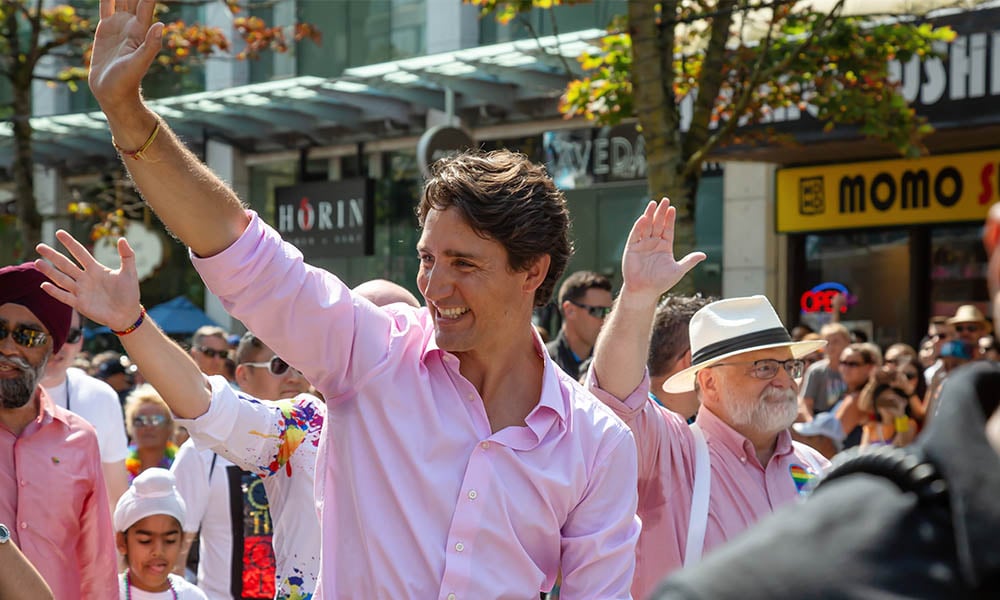Stock market decline quickly recovers, but policy promises to become a battleground if Liberals win

The stock market temporarily retracted slightly this week after Prime Minister Justin Trudeau vowed to place a 3% surtax on big banks and insurance companies if he was re-elected.
“Definitely the stocks did pull back a little bit,” Allan Small, senior investment advisor of Allan Small Financial Group with iA Private Wealth, told WP soon after. “But, they have gone higher since again, so we’ll have to see how the market reacts to it.”
Small noted that Canadian federal elections don’t typically impact the Canadian stock market, certainly not as much as American elections, but there could be more reverberation if the Liberals win a majority, or even a minority, and work with the NDP to implement Trudeau’s policy.
“That could be a bit of a game-changer,” he said. “Taxing these banks and financial institutions an extra 3% could generate about $2.5 billion on an annual basis, starting next year. So, if he was able to pass this, it would be huge. It could mean, obviously, more tax generation or revenue for the government, but at the expense of these banks.
“That could definitely affect bank stocks because, as we know, they make up the largest component of our market and, obviously, affect our market. So, the results of this election could possibly affect the performance of the Toronto Stock Exchange and our Canadian market.”
Whether that will happen is a big unknown since the Conservatives were climbing higher in the polls than anticipated when the election was called. If the Liberals win, though, Small said investors might continue to view Trudeau’s policy as a negative and further impact the market – but Trudeau’s green initiatives could also give Canadian companies involved in those areas a slight boost.
Beyond that, however, there’s not much noteworthy in the election backdrop that’s impacting the market. While COVID cases are climbing and there’s some inflationary pressure, neither are directly tied to the election, although the inflationary pressure raises the question of whether the central banks will have to raise interest rates to combat a rising inflationary time. So, despite Trudeau calling the election to determine the next phase of pandemic recovery, Small said the market was taking a “wait-and-see approach”.
In the meantime, he noted the market has been more volatile since the 2008 financial crisis, so he’s not advising his clients to hold for the long-term.
”The whole idea of buy and hold forever, I think that’s changed,” he said. “Today, I think you want to set your target and, when it’s been reached, re-evaluate and maybe take some profit off the table and move that money into another position; a growth one.”
Once the election is settled and we know if Trudeau can implement his 3% surtax, Small said, the banks will make their case and probably be joined by investors who own bank stocks – through pension plans, mutual funds, or individually in their portfolios – or count on their dividends in their retirement income.
“Banks are an integral part of all of our lives, so if you do anything to them in a negative way, it will obviously affect everybody in the country,” he said. “So, we’ll see how that battle plays out.”



